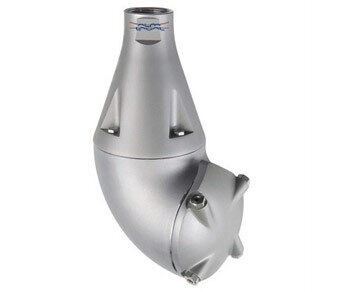
Alfa Laval MultiJet 25
The Alfa Laval MultiJet 25 is a rotary jet head tank cleaning machine for use in industrial environments.
Alfa Laval MultiJet 25
The Alfa Laval MultiJet 25 is a rotary jet head tank cleaning machine for use in industrial environments. Built to clean tanks with capacities from 15 and 150 m3 , it combines pressure and flow to create high-impact cleaning jets rotate in a repeatable and reliable 360-degree cleaning pattern. The MultiJet 25 minimizes the consumption of water and cleaning media. Easy to customize to meet customer requirements, it allows companies to spend less time cleaning and more time producing.
Applications
The Alfa Laval MultiJet 25 is designed for the removal of the toughest residues from industrial tanks across a broad range of industries, such as the home care, chemical, pulp and paper, ethanol, starch, and oil industries.
Benefits
- 60% faster cleaning = more time for production
- Saves up to 70% of your cleaning cost
- Eliminates the need for confined space entry for manual tank cleaning
- High-impact cleaning in a 360° repeatable cleaning pattern
- Cleaning process can be validated using Alfa Laval Rotacheck
Standard design
The choice of nozzle diameters can optimize jet impact length and flow rate at the desired pressure. A 2.1 material certificate and an ATEX certification are available. Alfa Laval offers a wide range of tank cleaning machines suitable for different duties and industries. An alternative that offers performance similar to the Alfa Laval MultiJet 25 is the Alfa Laval GJ PF, which is ideal applications that require a small tank inlet opening.
Working principle
The high-impact jet stream from the rotary jet head covers the entire surface 360° of the tank interior in a successively denser pattern. This achieves a powerful mechanical impact with a low volume of water and cleaning media. The flow of the cleaning fluid makes the nozzles perform a geared rotation around the vertical and horizontal axes. In the first cycle, the nozzles lay out a course pattern on the tank surface. The subsequent cycles gradually make the pattern denser until at full cleaning pattern is reached. Once the full cleaning pattern is reached, the machine will start over again and continue to perform the next full cleaning pattern.

